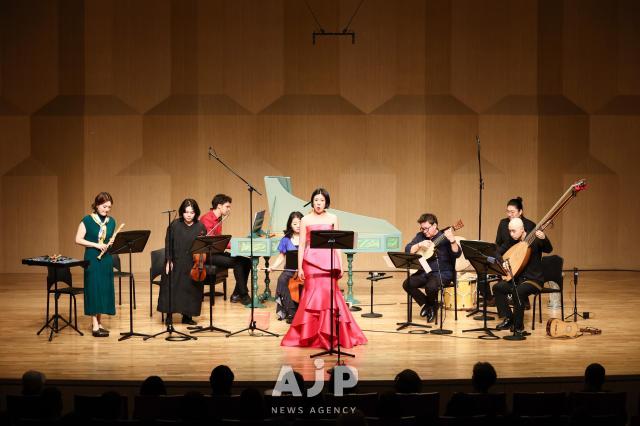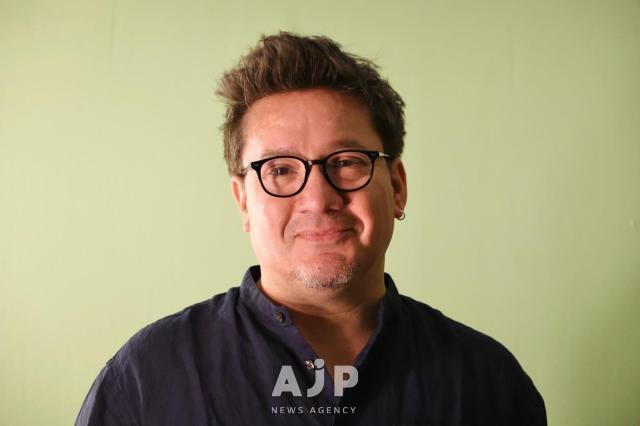
Last Wednesday's concert at Banpo Simsan Art Hall, part of a music festival hosted by the Seocho Cultural Foundation, along with Musica Ex Machina, a creative ensemble dedicated to rare early classical music, examined how Baroque music evolved into a distinct hybrid form through exchanges between Spain and Latin America during the colonial era, featuring instruments and works from both regions dating back to the 17th and 18th centuries.
Led by Chilean musician Cristian Gutiérrez, the concert brought together performers from South Korea, Europe, and Latin America. The repertoire reflected a blend of European musical traditions and local influences with selections ranging from Spanish court music to Peruvian Baroque folk styles.
Highlights included Pavana del Rey from 16th-century Spain, Canarios by Gaspar Sanz, and Si quieres dar Marica by José Marín. They also performed pieces from Peruvian manuscript Codex Trujillo including the Tonada "El Congo."

"Early music doesn't just mean playing old music — it means playing it the old way," he said, explaining the ensemble's use of traditional instruments and historically grounded techniques."
Yoon described Baroque music as "the first global cultural movement," shaped by 16th-century voyages that brought Spanish missionaries and sailors into contact with Indigenous and African communities. He stressed that Latin American Baroque was the result of both cultural absorption and transmission. "They didn't just bring culture - they also absorbed it," he said. "This is not just heritage - it's the product of historical fusion."
Yoon's path into music was unconventional. Raised in a rural town outside Daejeon, he taught himself classical guitar in middle school and initially enrolled at Korea Maritime & Ocean University, unaware that music could be a formal career.
After dropping out of school, he began pursuing music professionally and now leads Musica Ex Machina, one of the country's most innovative ensembles specializing in early music. That unlikely path shaped his deep respect for authenticity, which he sees not just as technique but as a way to "revive forgotten sounds" and make them resonate with today's listeners.

He explained that Latin American Baroque developed through mutual influence. "It's not just what European culture brought to America - it's also what they took. In the end, it's a mixture that became part of our identity."
Expressing his admiration for South Korean musicians, Gutiérrez said, "They sound like South Americans," he said. "They are really, really great professional musicians. I'm so happy and proud to play with them."
When asked what music had taught him, he answered, "Perseverance. We live in a time when everything is fast, but music teaches you to work day after day, over years. Only then can you understand what you've mastered."
Copyright ⓒ Aju Press All rights reserved.



